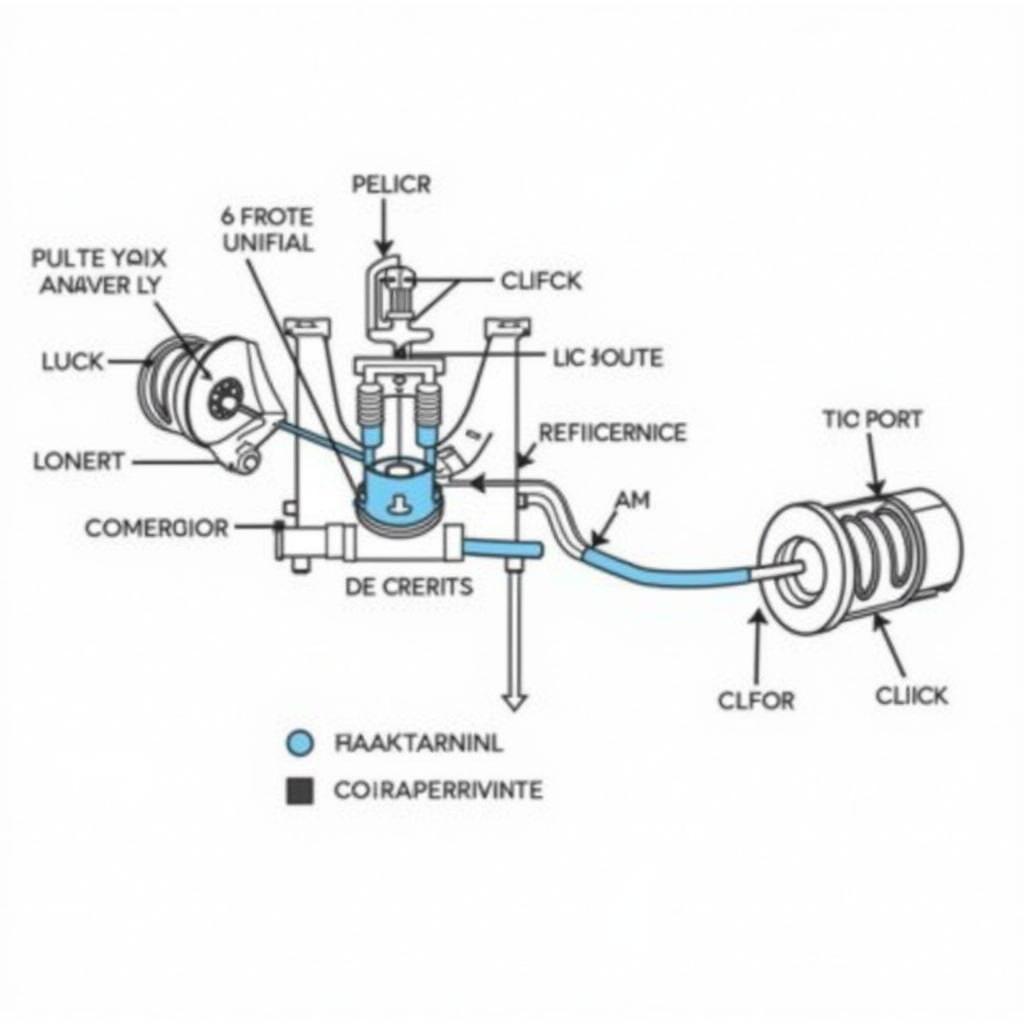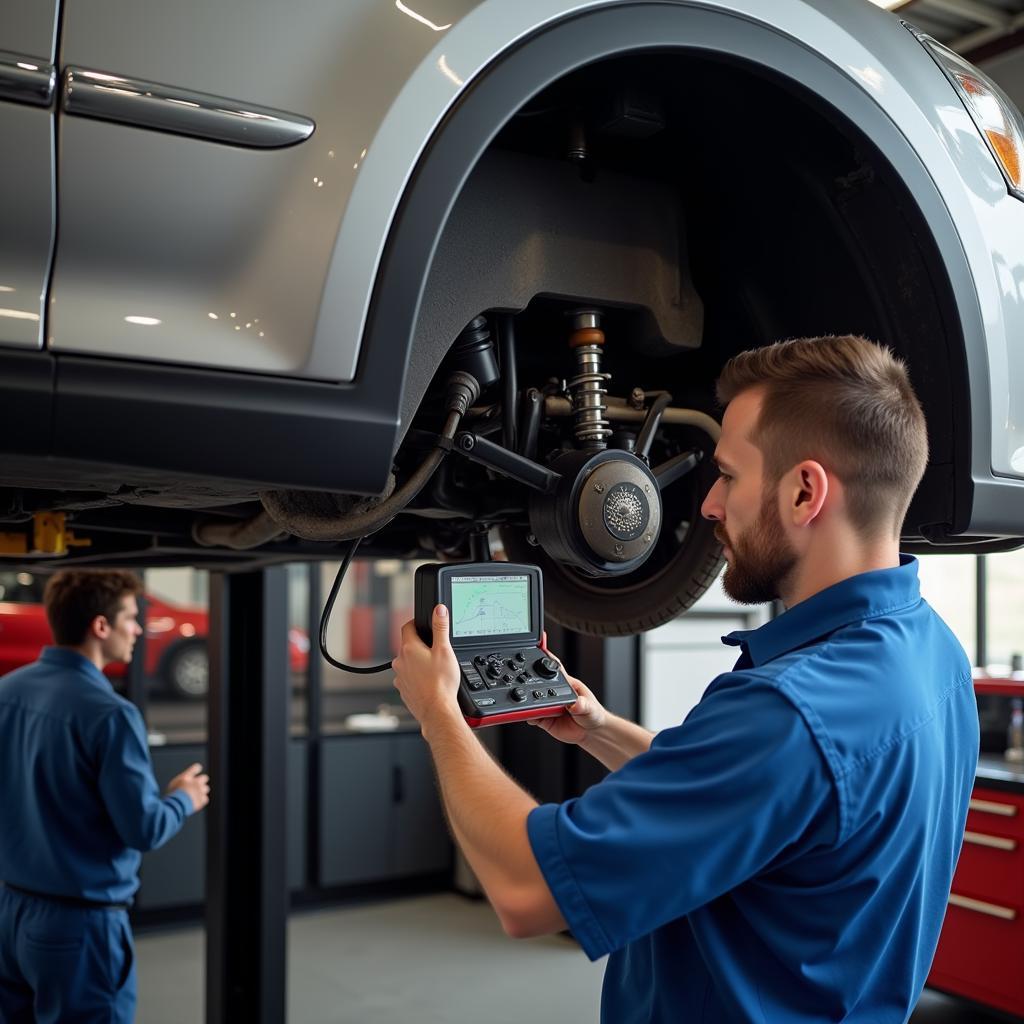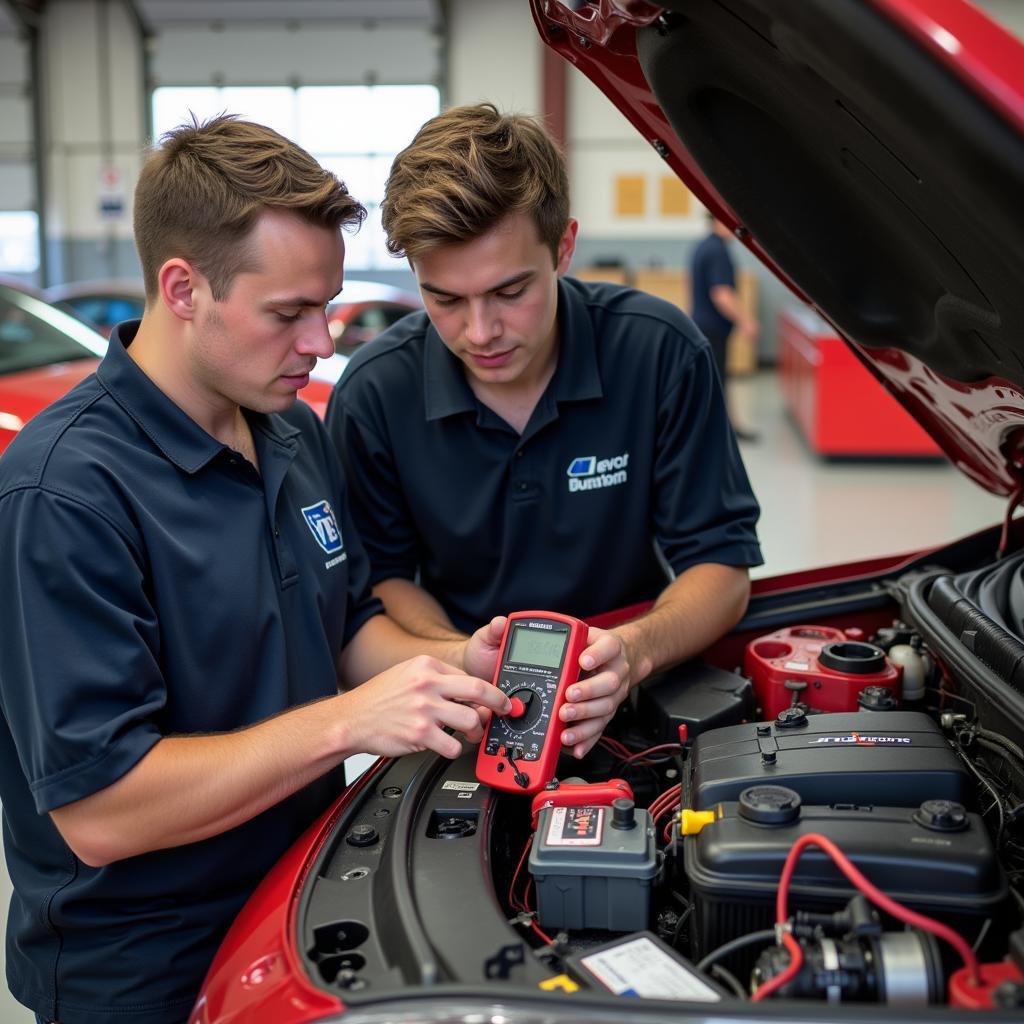Car Wheel Vibration Problems can range from a slight annoyance to a serious safety hazard. Understanding the causes and solutions can save you time, money, and potential headaches. This guide will explore the most common reasons for vibrating car wheels and provide practical solutions for diagnosing and fixing them.
Why is My Car Wheel Vibrating?
Several factors can contribute to car wheel vibration problems. Let’s delve into some of the most common culprits:
Tire Issues: The Usual Suspects
-
Tire Balance: One of the most frequent causes is tire imbalance. This happens when the weight distribution around the tire is uneven. Even a small imbalance can cause noticeable vibrations, especially at higher speeds. A simple tire balancing procedure at your local tire shop can often resolve this.
-
Tire Wear and Damage: Uneven tire wear, bulges, or flat spots can also induce vibrations. Regularly rotate your tires and check for any signs of damage. If you notice any irregularities, it’s time for new tires. Remember that problems with car brakes can also affect tire wear, leading to vibrations.
-
Low Tire Pressure: Under-inflated tires can cause vibrations and affect your car’s handling. Check your tire pressure regularly and inflate them to the recommended levels specified in your owner’s manual.
Beyond the Tires: Exploring Other Causes
-
Wheel Alignment: Improper wheel alignment can lead to vibrations felt through the steering wheel and the car’s body. Ensure your vehicle’s alignment is checked and adjusted periodically, especially after hitting potholes or curbs. If you’re experiencing steering problems car, check your wheel alignment first.
-
Brake Problems: Warped brake rotors or drums can cause vibrations when braking. This often manifests as a pulsing sensation in the brake pedal. If you experience this, consult a mechanic to inspect your brakes. You can find more information about problems with car brakes in our dedicated article.
-
Suspension Components: Worn or damaged suspension components like ball joints, tie rod ends, or control arms can also contribute to vibrations. These issues often manifest as a clunking or knocking sound in addition to vibrations.
-
Drivetrain Problems: In all wheel drive cars problems, especially related to the driveshaft or CV joints, can cause vibrations at specific speeds. These problems require professional diagnosis and repair. If you own an all-wheel-drive vehicle, familiarize yourself with the potential problems with all wheel drive cars. This can save you a lot of trouble down the road.
Diagnosing and Fixing the Vibration
Diagnosing the source of the vibration requires a systematic approach:
-
Check Tire Pressure: Start with the easiest check – ensure your tires are inflated correctly.
-
Inspect Tires for Wear and Damage: Look for uneven wear patterns, bulges, or other visible damage.
-
Get Your Tires Balanced: Even if your tires look fine, imbalances can still cause vibrations.
-
Have Your Wheel Alignment Checked: Improper alignment can cause vibrations and premature tire wear. For more information about different car symptoms, check out our article on symptoms of car problem.
-
Inspect Brakes: Check for warped rotors or drums, especially if the vibration occurs during braking.
-
Check Suspension Components: Have a mechanic inspect your suspension for worn or damaged parts.
-
Inspect Drivetrain Components: This is particularly important for all-wheel-drive vehicles.
“A smooth ride isn’t just about comfort; it’s about safety. Addressing wheel vibrations promptly can prevent more serious issues down the road,” advises John Smith, Senior Automotive Technician at Auto Experts.
“Regular maintenance, including tire rotations and wheel alignments, can significantly reduce the likelihood of experiencing vibration problems,” adds Sarah Jones, Lead Mechanic at Precision Auto Care.
Conclusion
Car wheel vibration problems can be caused by a variety of factors, ranging from simple tire imbalances to more complex suspension or drivetrain issues. By understanding the potential causes and following a systematic diagnostic approach, you can effectively address these issues and ensure a safe and comfortable driving experience. Remember that ignoring these vibrations can lead to more serious problems, so it’s always best to address them promptly. Connect with us at AutoTipPro for further assistance. We’re here to help! You can reach us at +1 (641) 206-8880 or visit our office at 500 N St Mary’s St, San Antonio, TX 78205, United States. If you’re searching for the best cars for drivers with back problems, we have a helpful guide available.







Leave a Reply